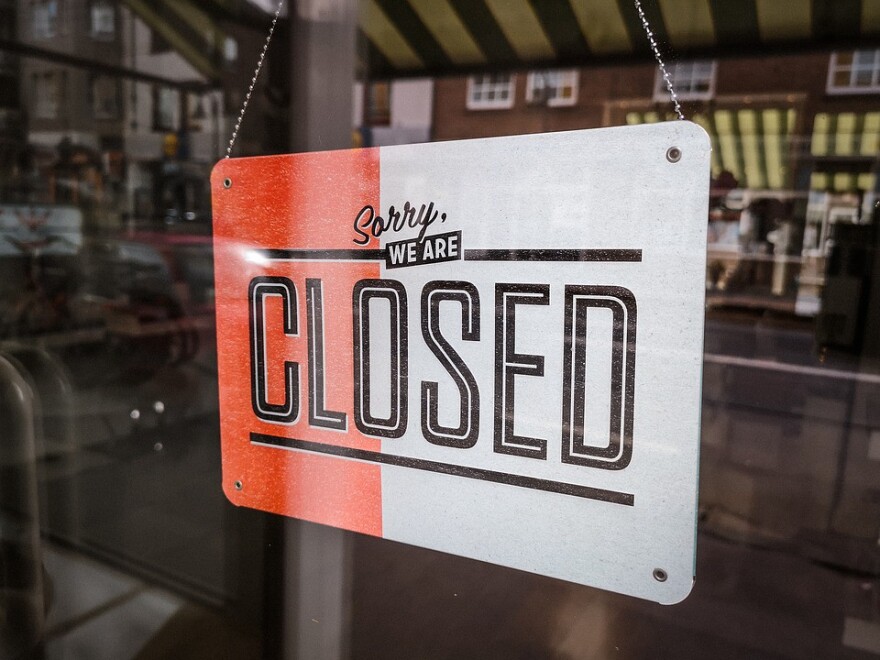When Nevada Governor Steve Sisolak issued a directive to partially lockdown the state, he warned that businesses choosing to remain open may face penalties. What he didn't do is set specific guidelines on how to enforce the order. Instead, that responsibility was largely left to local law enforcement.
Nevada is essentially under a stay-at-home order until the end of April, at the earliest. That includes non-essential businesses. When he issued the order, Sisolak told reporters he wasn’t playing around.
“There should be no confusion. And there's not in my mind. This is not the time to try to find loopholes,” Sisolak said. “If your business is not essential to providing sustenance and for the everyday safety, health and wellbeing of Nevadans, you must shut down so that we can give health care workers and our fellow citizens the best chance at fighting this virus that we can.”
Part of that directive gave local governments the ability to enforce the closures in the best way they see fit, including criminal penalties if necessary.
So how have municipalities responded?
In Clark County, which has the vast majority of the state’s COVID-19 cases, commissioners made it a criminal misdemeanor to remain open, imposing up to a $1,000 fine on business owners who defy the order.
For Washoe County, code enforcement has so far taken the lead.
“We are doing, on the side, business checks throughout the entire county,” said Washoe Sheriff Darin Balaam. “I have bumped up patrols to check those closed businesses and I can tell you just during the day and night when we're doing that, we haven't ourselves found any businesses that are open that should be closed.”
In rural communities, though, the response is more mixed.
“We've given one warning and that was clarified once we talked to the business owner,” said Captain Sean Wilkin with the Humboldt County Sheriff’s Office. “It was on a curbside food pickup issue, and once we talked to the business owner and clarified everything with them, we have had no enforcement actions that we've had to take.”
About 75 miles south, Lovelock Mayor Michael Giles has questioned whether Sisolak’s order is entirely legal.
“Well, the concern is, does he have the right to do actually order private businesses to close?” asked Giles. “He has the right to do whatever he wants with state employees and state offices. But when it comes down to actual private businesses, I don't know whether he has that authority.”
In the days after Sisolak’s initial attempt at closing non-essential businesses, leaders in Las Vegas as well as Elko, White Pine and Storey counties openly criticized the effort.
That open criticism by those same elected officials has since quieted down, yet, there seems to be some resistance to the order within the general public.
On a call on Thursday, April 2, Reno Mayor Hillary Schieve told reporters the city is still getting reports of businesses remaining open. She said the city will find out if people are violating the order. “I know it's challenging, Schieve said.
“It's hard because we're not bringing in a paycheck and we're all just trying to do whatever we can to make our businesses work. I know that many of you have jumped online or you've modified your business and I'm so grateful for that. But there are some people that are pushing the limits and we will fine you for this activity.”
One thing that remains unclear is whether the enforcement of the governor’s stay-at-home directive extends beyond businesses to individuals who are still getting together in public. And with Easter approaching, a holiday known for extended-family dinners, it’s a question that appears to be on Sisolak’s mind.
“This isn’t the time to have an Easter dinner of 23 people in your immediate family that you haven’t seen since Christmas," Sisolak said. "This is not the time to get together and have Easter dinner because there could be a transmission there.”
To underline that point, Sisolak told reporters at a press conference on Monday, April 6, that he’s willing to take further actions to prevent the spread of COVID-19.







